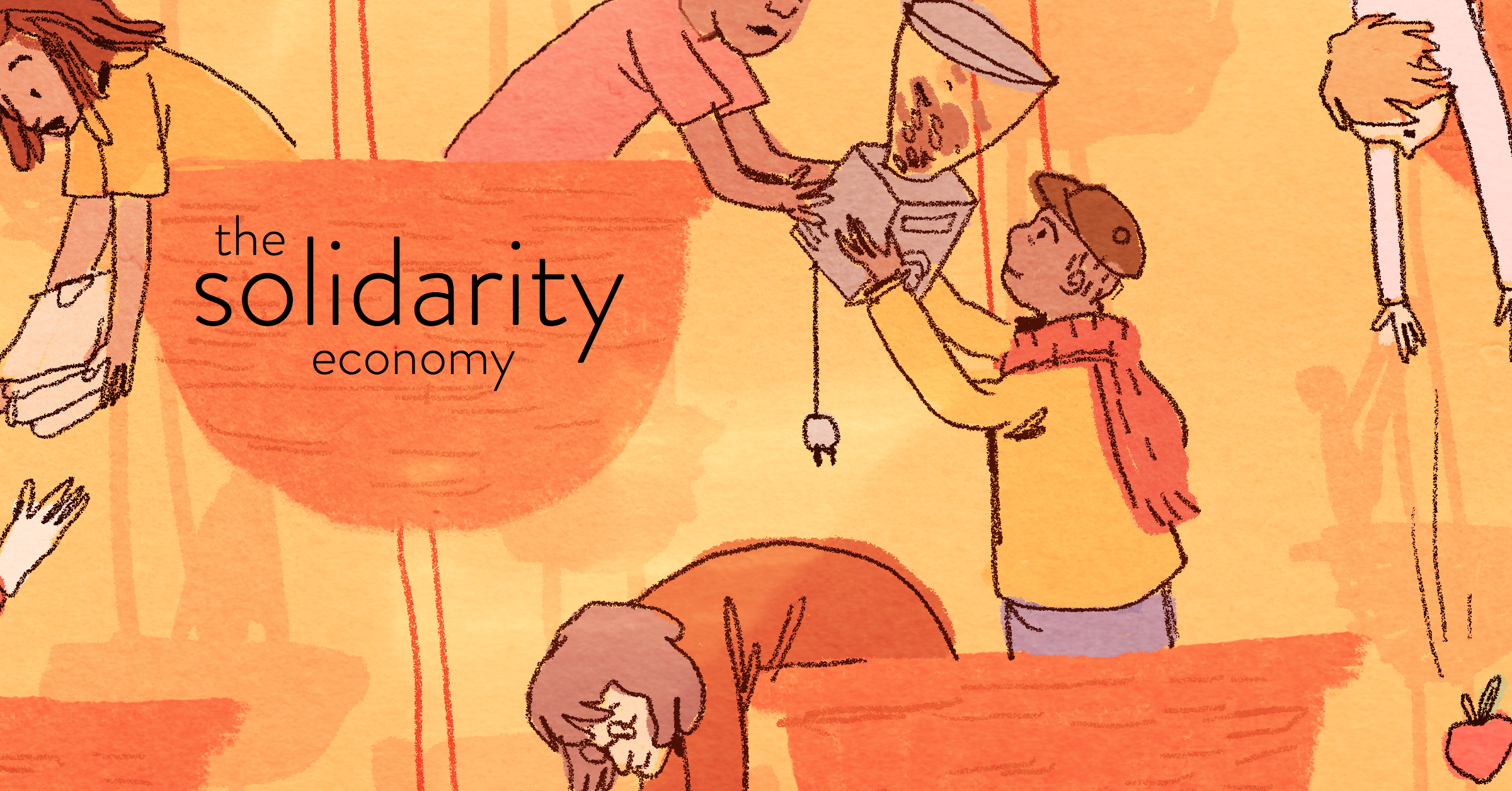In the face of social and ecological peril, there’s a movement that continues to build and resist. This podcast will take you into the heart of it.
“I can’t accept the death of my imagination on a daily basis,” Caroline Woolard told us when we visited her at her studio in Lower Manhattan. “I’d rather have less money and work for something that I believe in.”
Caroline is an artist who co-creates projects and institutions for and within the solidarity economy.
In this episode, Upstream Podcast explores the Solidarity Economy, a phenomenon that has existed throughout centuries both within and alongside capitalism wherever and whenever relationships have been based on reciprocity, sustainability, and democratic governance — as opposed to competition, exploitation, and blind profit-maximization.
Caroline is just one of the cast of characters that guides us on our journey. Micheal Lewis and Pat Conaty — authors of “The Resilience Imperative: Cooperative Transitions to a Steady-State Economy ” — both share from years of wisdom and experience on the front lines of the alternative economy. They explain the term, its origins, and how the solidarity economy is strengthened and enlivened by countermovements and during times of crisis.
“It is a contending within a sea of capitalism — it’s seeking to build alternatives on the one hand and to resist what capitalism represents on the other,” Lewis says. “The solidarity economy is saying that there is a different way of doing markets, with solidarity, cooperation, with redistribution of wealth — with policies for people and planet, as opposed to some unaccountable elite.”
Conaty takes us to the roots of the solidarity economy using economic historian Karl Polyani’s famous book , “The Great Transformation,” to explore the tension between free markets and mutual aid; two opposing strands of history which he calls the double-movement.
“There’s been so much money put into the marketing of the false myth of the free market,” Conaty says. “We need to recover a narrative that is about mutual aid.”
The episode then follows the presence of economic solidarity throughout the history of a particular marginalized community in the United States.
“In every period of our history, there was cooperative activity,” says Jessica Gordon Nembhard, author of “Collective Courage: A History of African American Cooperative Thought and Practice.”
Gordon guides us through deeply moving stories of solidarity among African Americans from the the eras of slavery and sharecropping in the U.S.
Next we travel to the Netherlands, where we explore a modern solidarity response to economic austerity. From the apartment of freelance actor Jos Veldhuizen, to the headquarters of Broodfonds in Utrecht, the episode explores how a small group of self-employed individuals banded together to create a mutual aid network for longterm sick-pay that has grown into a network spanning from Amsterdam to London.
The episode concludes with a dream about the potential of this alternative system as part of a larger paradigm shift in the face of ecological dangers. Can the Solidarity Economy grow to global prominence and serve as a movement of movements? We hear the final thoughts from our guests and go upstream on this broad movement as it continues to build and resist.
Learn more here: upstreampodcast.org/
This episode was brought to you in partnership with STIR Magazine and their Winter 2017 Solidarity Economics issue: For more info, visit: https://www.

